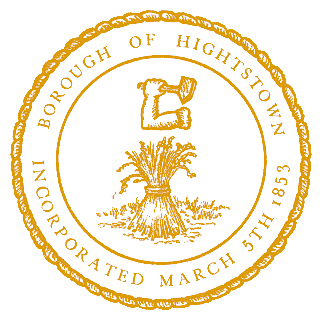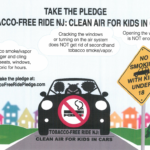
The Hightstown Police Department in partnership with the NJ Attorney General’s Office, NJ Department of Consumer Affairs, NJ Department of Environmental Protection and the Drug Enforcement Agency participates in Project Medicine Drop.
Project Medicine Drop is a program designed to allow Borough residents to properly and safely dispose of their unwanted or expired household medications.
Residents can bring their unwanted or expired household medications removed from the original packaging and placed in a zip lock or similar type plastic bag to the Hightstown Police Department, 415A Mercer Street, Hightstown, 24 hours a day. Residents will then place their medication into the Project Medicine Drop box which is located outside Police Headquarters at the police station anonymously and free of charge. The medications will then safely and properly be destroyed.
Types of Medication That Can Be Disposed
For safety reasons, the Project Medicine Drop boxes can only accept solid medications such as pills, patches, inhalers, and similar objects.
The boxes cannot accept liquids, medical waste, or syringes. Consumers wishing to dispose of these objects should speak with their doctors or pharmacists to find the safest and best ways to dispose of them.
It should also be noted that consumers may only dispose of legal prescription or over-the-counter medications. Anyone wishing to dispose of any illicit drug, should follow the normal procedure of reporting it to the police.
For more information regarding Project Medicine Drop please visit these links:
Other Mercer County Locations
East Windsor Police Department • 80 1 Mile Road • East Windsor, New Jersey 08520 • (609) 448-5678
Hamilton Township Police Department • 1270 Whitehorse-Mercerville Road • Hamilton, New Jersey 08619 • (609) 581-4045
Hopewell Township Police Department • 201 Washington Crossing Pennington Road • Titusville, New Jersey 08560 • (609) 737-3100
Lawrence Township Police Department • 2211 Lawrenceville Road • Lawrenceville, NJ 08648 • (609) 896-0225
Princeton Police Department • 1 Valley Road • Princeton, NJ 08540 • (609) 927-2100
Robbinsville Township Police Department • 1117 U.S. 130 • Robbinsville, NJ 08691 • (609) 259-3900
The College of New Jersey Police Department • 2000 Pennington Road • Ewing Township, NJ 08618 • (609) 771-2345
West Windsor Police Department • 20 Municipal Drive • West Windsor, NJ 08550 • (609)799-1222



